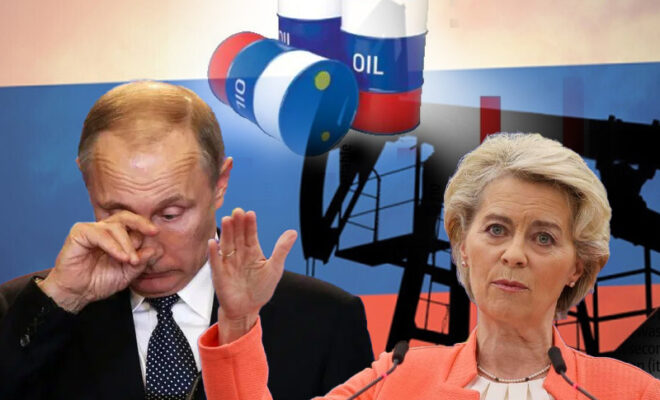EU Nations Edges Closer To $60 Per Barrel Russian Oil Price Cap

After Poland resisted to reach a high number, EU countries tried to force the cap through, officials said on Thursday. Still waiting for white smoke from Warsaw, an EU diplomat said.
The European Union was coming closer to imposing a USD 60-per-barrel restriction on Russian oil, an eagerly awaited and complicated political and economic maneuver aimed to keep Russia’s supply running into international markets while restricting President Vladimir Putin’s capability to pay for his conflict in Ukraine.
After Poland resisted to reach a high number, EU countries tried to force the cap through, officials said on Thursday.
An EU diplomat who spoke on the condition of confidentiality because the negotiations were still in progress stated that they were still expecting for white smoke from Warsaw.
The most recent proposal, which has been backed by three EU ambassadors, comes just days before Monday, when a European boycott on Russian crude oil transported by sea and a prohibition on shipping insurance for such shipments go into force.
As the legal process was still ongoing, the diplomats also spoke on the condition of anonymity.
In order to prevent a precipitous loss of Russian oil to the world as a result of the new Western sanctions, the USD 60 number would indicate a cap close to the current price of Russia’s petroleum, which dropped this week below USD 60 per barrel.
It is significantly less expensive than the global benchmark Brent, which closed Thursday’s trade at roughly USD 87 per barrel, but it might be high enough for Russia to continue selling even if a cap is rejected.
A new buyer’s cartel, believed to include both formal and unofficial members, will emerge once the final number is known.
The move to impose a price cap was spearheaded by Western partners in the Group of Seven industrial countries, who still need to agree to the amount.
Despite export restrictions, sanctions, and the freeze of central bank assets that started with the February invasion, oil remains the Kremlin’s primary source of financial support and has so far held the Russian economy afloat. Every day, Russia exports almost 5 million barrels of oil.
Failure of the price cap poses significant dangers to the world’s oil supplies. Global energy costs may soar if it fails or if Russia responds by halting oil exports.
Putin has stated that he will not sell oil at a price cap and will take action against countries who do so.
Consumers in the US and Europe may experience additional gasoline price increases, while citizens in poorer nations may experience higher levels of food insecurity as a result.



